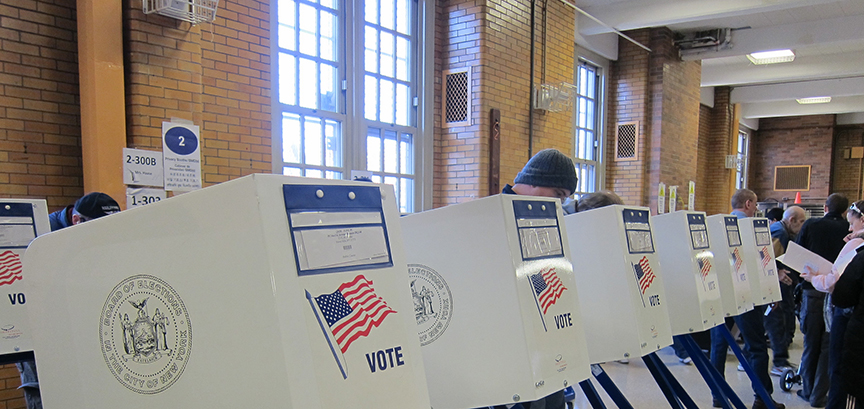Voters in five states will decide ballot measures related to electoral systems on November 3, 2020. Policies that are on the ballot include ranked-choice voting, top-two and top-four primaries, the national popular vote interstate compact, and runoff elections. Most (4 of 5) of the ballot measures came through the citizen-initiated petition process.
In Colorado, Proposition 113 asks voters whether to uphold or repeal legislation to add the state to the National Popular Vote Interstate Compact (NPVIC). The NPVIC was designed to give the state’s electoral votes to the presidential candidate who wins the nationwide popular vote. It would take effect is states representing at least 270 electoral votes join the NPVIC. In 2019, the Democratic-controlled Colorado State Legislature passed a bill to join the NPVIC. Two Republicans— Mesa County Commissioner Rose Pugliese and Monument Mayor Don Wilson—filed a veto referendum on the bill resulting in Proposition 113. Currently, 14 states and Washington, D.C., (representing 187 electors in the Electoral College) have adopted legislation to join the compact.
In Massachusetts and Alaska, voters will decide ranked-choice voting ballot initiatives. Massachusetts Question 2 would enact ranked-choice voting for federal, state, and some local primaries and general elections. Alaska Ballot Measure 2 would use ranked-choice voting for general elections but not primaries. Instead, Ballot Measure 2 would adopt top-four primaries in which all candidates run on the same ballot regardless of partisan affiliation, and the four who receive the most votes move on to the general election.
Massachusetts and Alaska could be the second and third states to adopt ranked-choice voting for at least some statewide elections. In 2016, Maine became the first state to enact a state system of ranked-choice voting after voters approved a ballot measure. In both Massachusetts and Alaska, the top donors behind the measures are the Action Now Initiative and Unite America.
While Alaska Ballot Measure 2 would adopt top-four primaries, Florida Amendment 3 would replace the state’s closed primaries with top-two open primaries for elected state offices. Florida would join California and Washington in using top-two open primaries. Miguel Fernandez, a businessman and investor, is funding the campaign.
Voters in Mississippi will decide a legislative referral to change how the governor and state officials are elected. Heading into November, the Mississippi Constitution requires that gubernatorial and state official candidates receive the most votes statewide and the most votes in a majority of the 122 state House districts to win the election. If no candidates win a majority of the state House districts, then state representatives decide the election. The ballot measure would repeal the majority-of-House-districts requirement and, instead, require candidates to win a majority of the vote. If no candidate wins a majority of the vote, then a runoff election would be held between the top two candidates under the measure.
This year’s electoral system ballot measures would—or in the case of Colorado, could—impact how candidates are elected in the future.
Where electoral systems are on the ballot in 2020
By

Additional reading:

